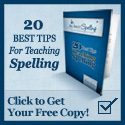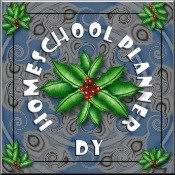
The CM Ideal
"that there is no part of a child's education more important than that he should lay, by his own observation, a wide basis of facts towards scientific knowledge in the future. He must live hours daily in the open air, and, as far as possible, in the country; must look and touch and listen; must be quick to note, consciously, every peculiarity of habit or structure, in beast, bird, or insect; the manner of growth and fructification of every plant. He must be accustomed to ask why––Why does the wind blow? Why does the river flow? Why is a leaf-bud sticky? And do not hurry to answer his questions for him; let him think his difficulties out so far as his small experience will carry him. Above all, when you come to the rescue, let it not be in the 'cut and dried' formula of some miserable little text-book; let him have all the insight available and you will find that on many scientific questions the child may be brought at once to the level of modern thought. " Home Education pg. 265-266

How I put the CM Ideal in Practice
I'm a big fan of science . Love, love, love it. What has worked best for me in the past with science instruction is nature study, a bit of planned literature and lots of free exploration. I keep a list of science topics that we have covered and make yearly or quarterly decisions based on topics that we still need to explore. I will pick a few books from my list and spread them out in a quarter, a year, or longer depending on the needs of my family at any given time. I try to remain flexible because my kid's interest and free reading cover many science topics quite naturally without a lot of input from me. Science kits and visual books that are available from Usborne and DK are given as presents and the kids spend hours perusing them. Science experiments are just plain fun and my kids never considered them to be schoolwork. With the older kids I switched to a textbook science course(Apologia's General Science) the year before I thought they would be ready to start Pre-Algebra-usually around age 12- so that they were starting Biology and Algebra at the same time.

A Science Book list
When referring to a favorite science text, Charlotte Mason states, "But the amazing skill of the author is shown in the fact that there is nothing scrappy and nothing hurried in the treatment of any topic, but each falls naturally and easily under the head of some principle which it elucidates. Many simple experiments are included, which the author insists shall be performed by the children themselves." Home Education pg. 267
My job is to find these types of texts.
My incomplete list of science books by age level. Some are family favorites, some are classics and some may never be read by this family. I'm sure I'm missing a few good books and this is a living list which may grow throughout the years as I find new authors and new titles.
Ages 6-9
Among the ….. People by Clara Dillingham Pierson
The Burgess Bird Book for Children by Thornton Burgess
The Burgess Animal Book for Children by Thornton Burgess
The Burgess Bird Book for Children by Thornton Burgess
The Burgess Animal Book for Children by Thornton Burgess
The Burgess Seashore Book for Children by Thornton Burgess
The Stories Mother Nature Told Her Children by Jane Andrews
Parables from Nature by Margaret S. Gatty
James Herriot's Treasury for Children by James Herriot
Various books from Usborne/ DK
Various science kits
Ages 9-12+
Secrets of the Woods by William J. Long
A Little Brother to the Bear by William J. Long
Great Inventors and Their Inventions by Frank P. Bachman
The Story of Inventions by Michael J. McHugh and Frank P. Bachman
School of the Woods by William J. Long
The Story Book of Science by Jean Henri Fabre
Madam How and Lady Why by Charles Kingsley
Wild Animals I Have Known by Ernest Thompson Seton
The Fairy-Land of Science by Arabella Buckley
It Couldn't Just Happen by Lawrence Richards
The Sea Around Us by Rachael Carson
The New Way Things Work by David Macaulay
Archimedes and the Door of Science by Jeanne Bendick
The Story of Thomas Alva Edison by Margaret Cousins
Albert Einstein Young Thinker by Marie Hammontree
Marie Curie’s Search for Radium by Beverly Birch and Christian Birminham
Ben Franklin of Old Philadelphia by Margaret Cousins
Pasteur’s Fight Against Microbes by Beverly Birch
Blood & Guts: A Working Guide to Your Own Insides by Linda Allison
The History of Medicine by John Hudson Tiner
The Stories Mother Nature Told Her Children by Jane Andrews
Parables from Nature by Margaret S. Gatty
James Herriot's Treasury for Children by James Herriot
Various books from Usborne/ DK
Various science kits
Ages 9-12+
Secrets of the Woods by William J. Long
A Little Brother to the Bear by William J. Long
Great Inventors and Their Inventions by Frank P. Bachman
The Story of Inventions by Michael J. McHugh and Frank P. Bachman
School of the Woods by William J. Long
The Story Book of Science by Jean Henri Fabre
Madam How and Lady Why by Charles Kingsley
Wild Animals I Have Known by Ernest Thompson Seton
The Fairy-Land of Science by Arabella Buckley
It Couldn't Just Happen by Lawrence Richards
The Sea Around Us by Rachael Carson
The New Way Things Work by David Macaulay
Archimedes and the Door of Science by Jeanne Bendick
The Story of Thomas Alva Edison by Margaret Cousins
Albert Einstein Young Thinker by Marie Hammontree
Marie Curie’s Search for Radium by Beverly Birch and Christian Birminham
Ben Franklin of Old Philadelphia by Margaret Cousins
Pasteur’s Fight Against Microbes by Beverly Birch
Blood & Guts: A Working Guide to Your Own Insides by Linda Allison
The History of Medicine by John Hudson Tiner
other books by above authors
Other scientist biographies as available
Various books from Usborne/ DK
Various science kits as available.
Other scientist biographies as available
Various books from Usborne/ DK
Various science kits as available.






2 comments:
Thanks for the lists of science books! I'll have to check some of them out. :-)
Great list! Thank you for sharing this!!
Post a Comment